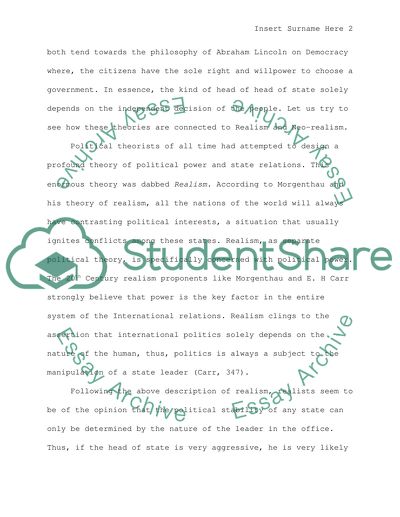Cite this document
(Existentialism and Democracy in the International Relations Essay Example | Topics and Well Written Essays - 1500 words - 1, n.d.)
Existentialism and Democracy in the International Relations Essay Example | Topics and Well Written Essays - 1500 words - 1. https://studentshare.org/philosophy/1681160-existentialism-and-democracy-in-the-international-relations
Existentialism and Democracy in the International Relations Essay Example | Topics and Well Written Essays - 1500 words - 1. https://studentshare.org/philosophy/1681160-existentialism-and-democracy-in-the-international-relations
(Existentialism and Democracy in the International Relations Essay Example | Topics and Well Written Essays - 1500 Words - 1)
Existentialism and Democracy in the International Relations Essay Example | Topics and Well Written Essays - 1500 Words - 1. https://studentshare.org/philosophy/1681160-existentialism-and-democracy-in-the-international-relations.
Existentialism and Democracy in the International Relations Essay Example | Topics and Well Written Essays - 1500 Words - 1. https://studentshare.org/philosophy/1681160-existentialism-and-democracy-in-the-international-relations.
“Existentialism and Democracy in the International Relations Essay Example | Topics and Well Written Essays - 1500 Words - 1”. https://studentshare.org/philosophy/1681160-existentialism-and-democracy-in-the-international-relations.


